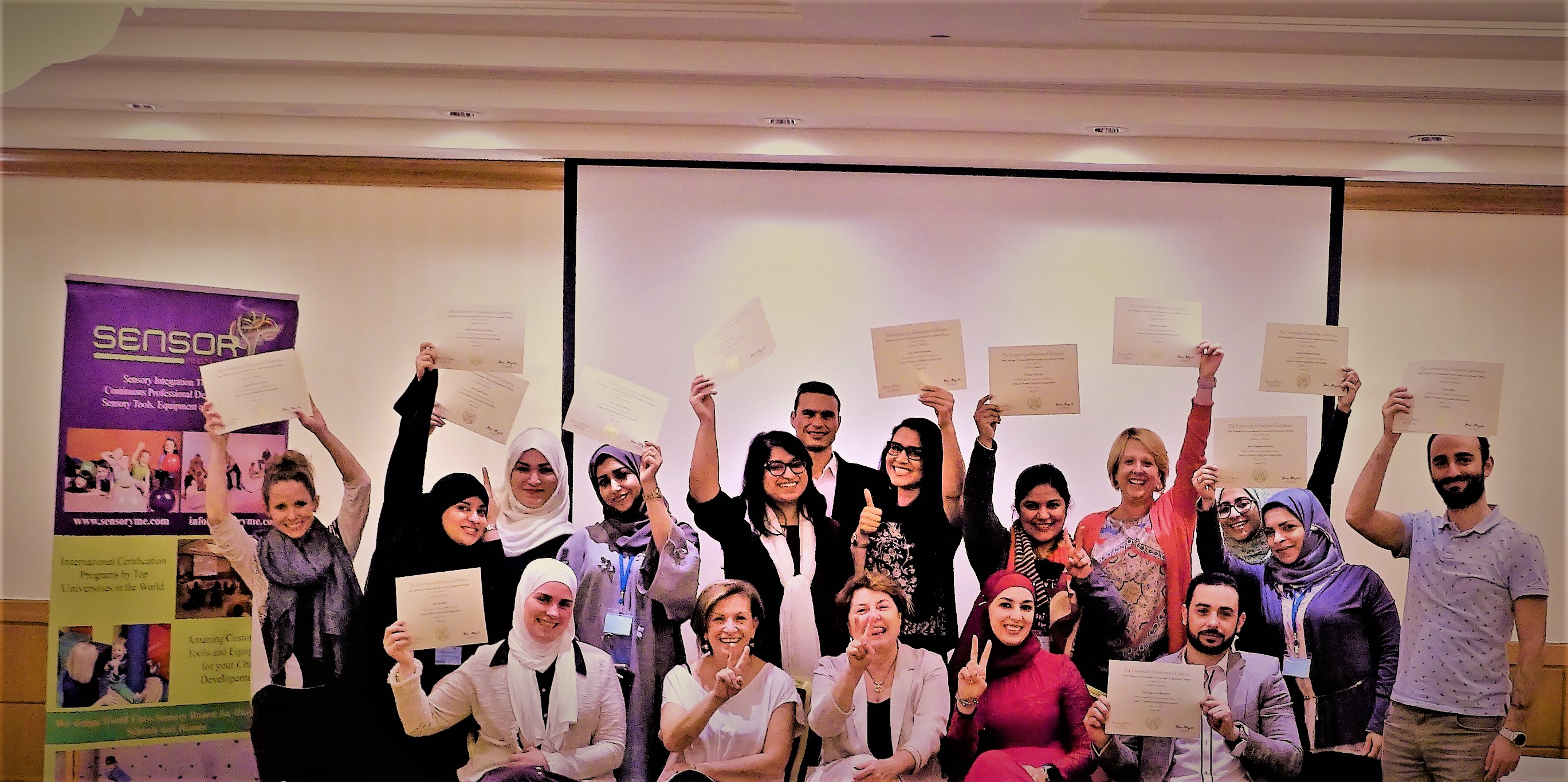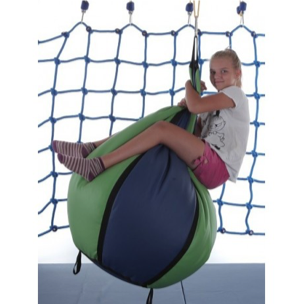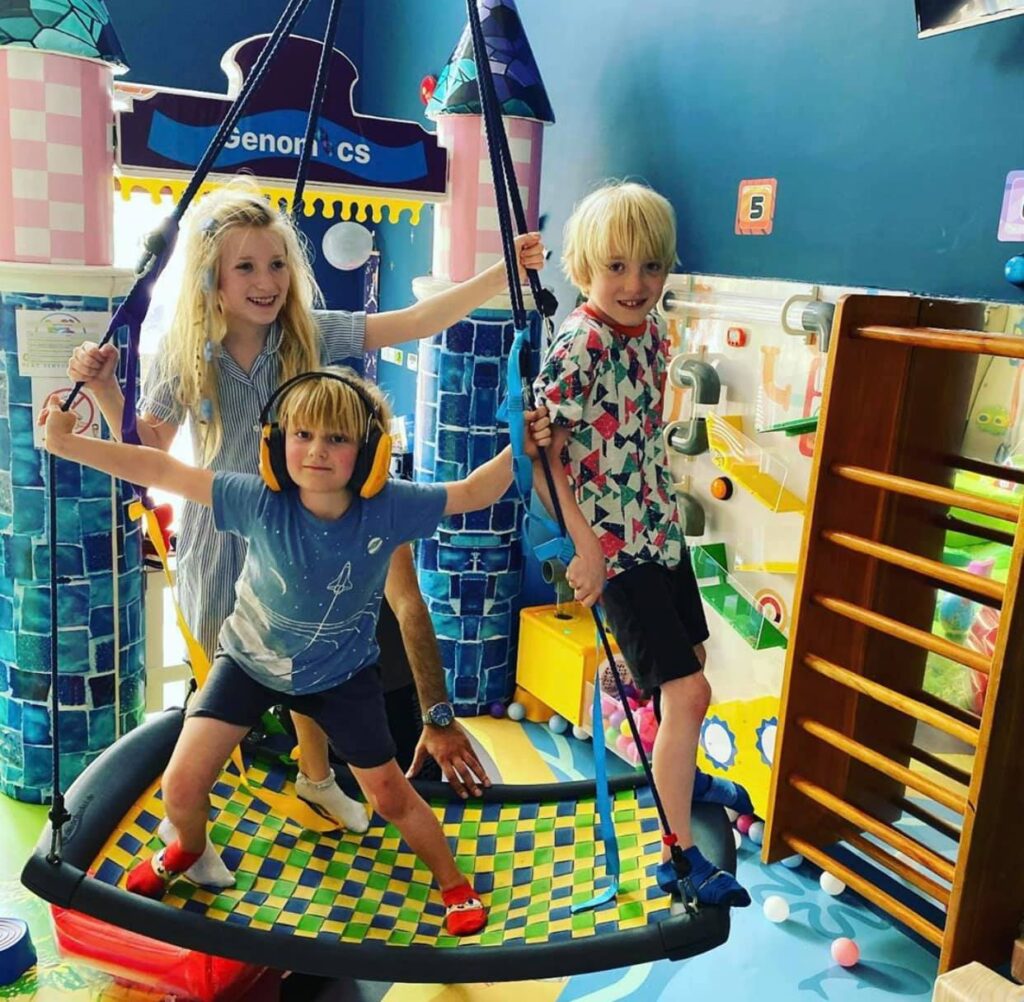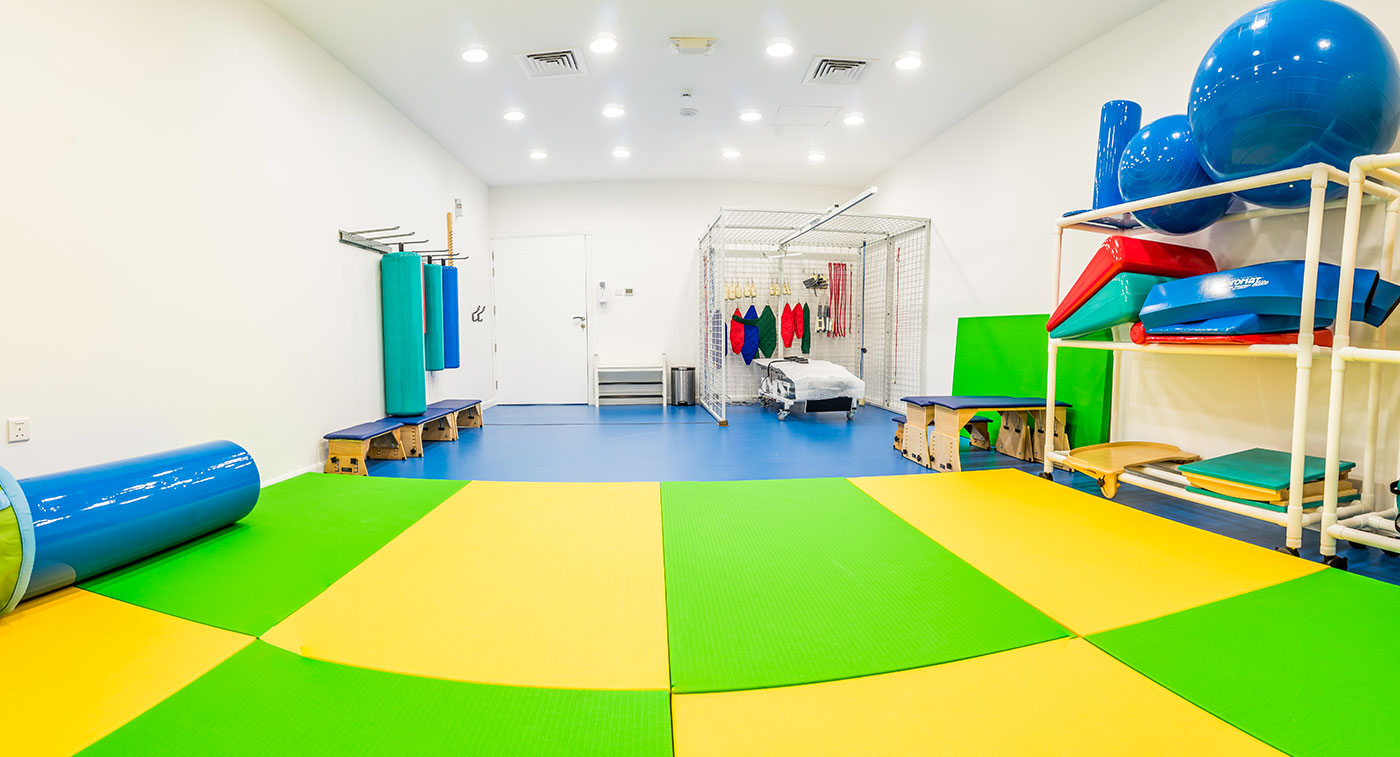نصيحة حسية: ساعة في اليوم من التأرجح تساعد طفلك في السلوك الإيجابي ، والتنظيم الذاتي ، والتوازن ، والتنسيق ، ومستويات أعلى من التكامل الحسي الحركي. تعد الأرجوحة الداخلية التي
باللغة العربية
تابعونا على قنوات التواصل الاجتماعي واليوتيوب هدفنا مشاركة أسر الأطفال بجميع القدرات من أصحاب الهمم وحتى الموهوبين رحلتهم في الحياة٫ وذلك لإنشاء جيل جديد برؤية جديدة في تطور ونمو الإنسان
Directory of Certified Therapists
Directory of Certified Sensory Integration Therapists Get In Touch: +971 569 343 599 Our Courses Have Therapists from around the world. A new vision of the World of Rehabilitation and
Our Clinical Affiliate
Osraty for Physio and Rehab A professional Physiotherapy and Rehabilitation clinic lead by Dr. Bushra AlMulla and her professional Rehabilitation Team. Osraty for Physio and
This video is of a high importance for parents to be, parents, health care professional and child care professionals who are in contact with children during their first months of life.
Early warning signs (Red Flags) in movement can lead into other mental health and behavioral disorders that could be detected and minimized to the maximum during Early Intervention timezone (Birth-5 years old). The sooner the better and more progress and therapy results could be shown. Even though the fact that at a later age than this, you still can see progress but that takes longer time span of years of Habilitation and Rehabilitation.
You never know, you might save your child or someone’s child from a life long struggle.
We will be posting more videos for further milestones in the coming days…
Stay tuned and post your comments below
SENSORYME Outreach Team
Find a Therapist in Your Area
Our wide and massive referral network in the Middle East helps you finding the following for your child: Qualified and certified Sensory Integration Therapists in your area Qualified and Certified therapists
Helping Children
Community Social Responsibility, Helping children and increase community awareness to develop better environments and support to all children: https://sensoryme.com/home-activity-suggestions [avatar user=”siotgcc@gmail.com” size=”medium” /] SENSORYME Team

USC Sensory Integration Continuing Education (CE) Certificate Program
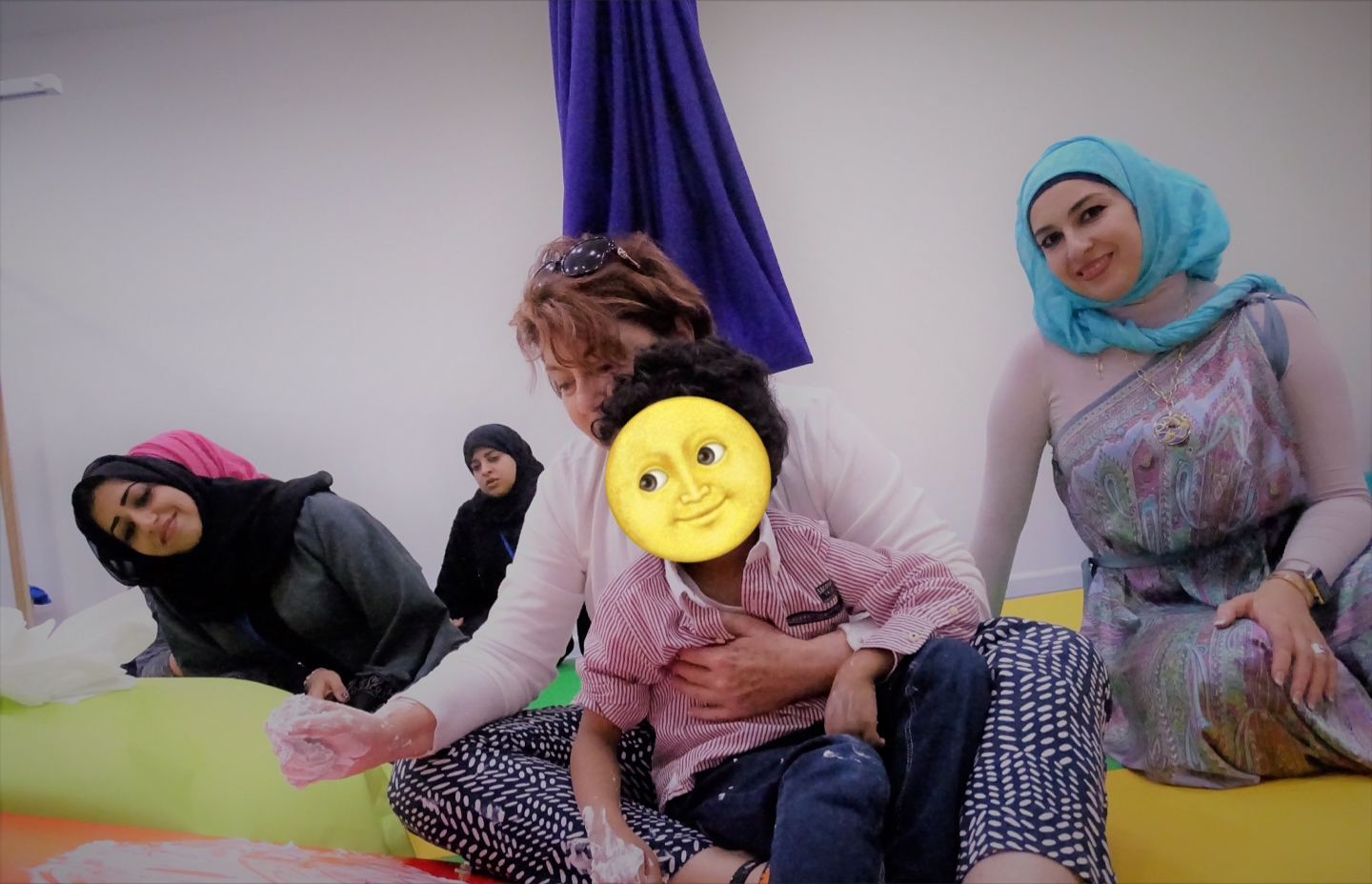
Participants
The USC Sensory Integration Continuing Education (CE) Certificate Program is open to occupational therapists who have graduated from an occupational therapy program that is recognized/approved by a government agency in the country of education. A limited number of physical therapists and speech therapists may also be eligible to complete the program. CE Course 1 — Theoretical Foundations of Sensory Integration is open to all interested participants. Please see below for specific course eligibility.
Course Format
USC Sensory Integration Continuing Education (CE) courses are now offered in-person and online! In-person CE courses will be hosted in locations across the United States and internationally.
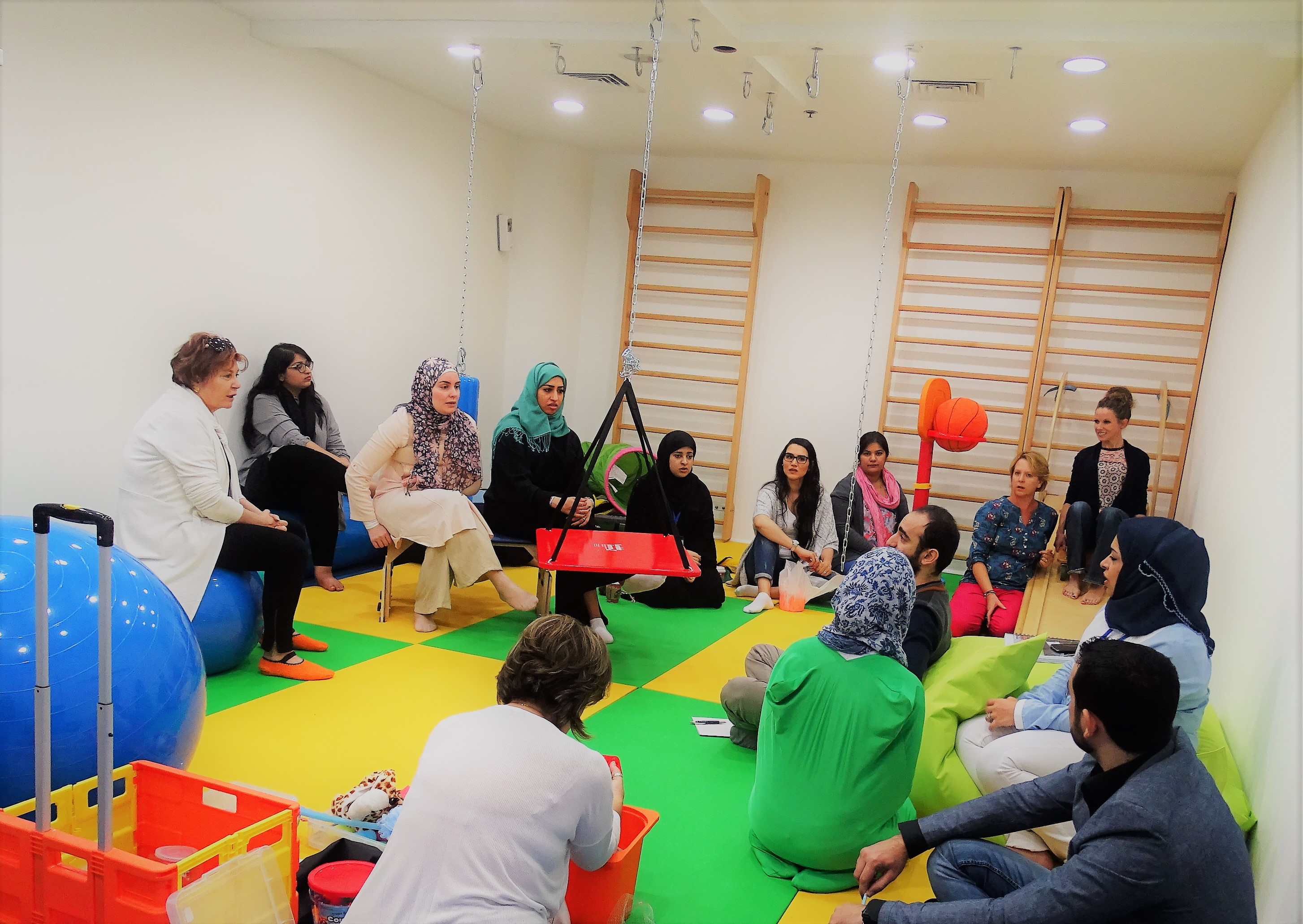
Course Descriptions
The USC Sensory Integration Continuing Education (CE) Certificate Program provides an opportunity for practicing occupational therapists to acquire advanced knowledge in the theory, assessment, and intervention principles of sensory integration as originated by Dr. A. Jean Ayres. To obtain this CE Certificate, participants must complete 100 contact hours (10 CEUs) within the following CE Courses, completed in numerical order:
- CE Course 1 — Theoretical Foundations of Sensory Integration: From Theory to Identification (30 hours): This course covers the basic neurobehavioral principles that undergird sensory integration theory. The specific contributions of individual sensory systems are examined in the context of everyday activities and occupations. Typical patterns of sensory integration dysfunction and their basic implications for intervention are discussed.
This course is open to all who are interested. Basic working knowledge of neuroanatomy is assumed.
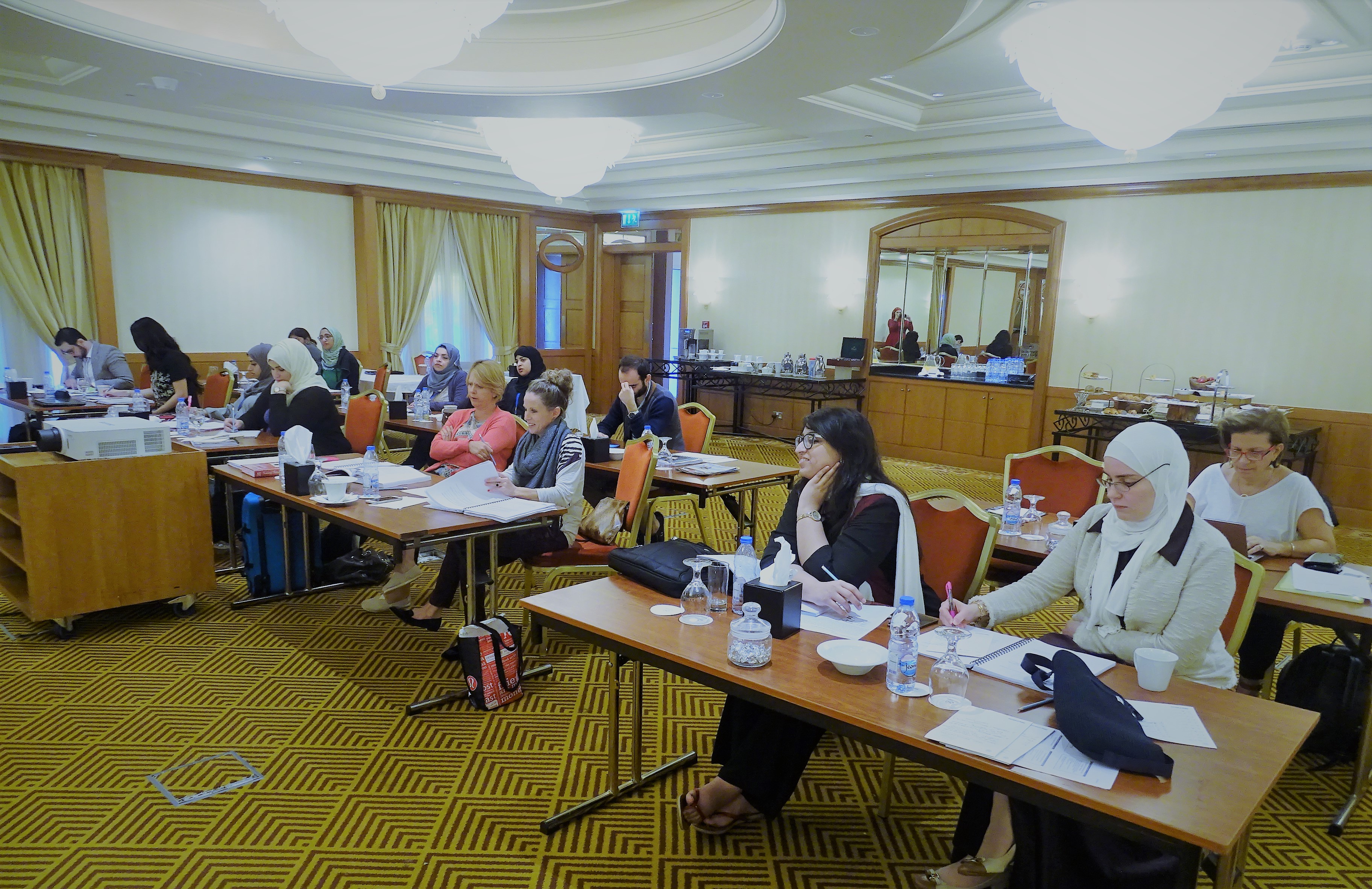
- CE Course 2 — Sensory Integration Evaluation and Clinical Reasoning: From Identification to Intervention (21 hours): This course is designed to provide participants with the knowledge needed to accurately assess sensory integration function and dysfunction in children. Participants will learn about a variety of assessment tools available to measure sensory integration dysfunction. Additionally, participants will use clinical observations and clinical reasoning to develop a comprehensive understanding of sensory differences across multiple clinical populations and the impact of these sensory differences on functional performance.
This course is open to occupational, physical, and speech therapists.

CE Course 3 — Sensory Integration Treatment: From Intervention to Participation (21 hours): This course prepares participants to provide intervention using a sensory integration frame of reference. Strategies for intervention planning and clinical reasoning informed by sensory integration principles are discussed in depth. An overview of approaches to sensory integration intervention for a range of populations in a variety of settings is explored.
This course is open to occupational, physical, and speech therapists.
- Special Topics in Sensory Integration (28 hours): Following completion of CE Courses 1, 2 and 3, participants have the opportunity to choose two courses from a variety of special topics that most appropriately apply to their own clinical practice. These advanced courses cover a range of special topics about the application of sensory integration principles in context. Special topics include Sensory Integration in School-Based Settings (14 hours), Sensory Integration and Early Intervention (14 hours), Sensory Integration for Children with Autism (14 hours) and Sensory-Based Feeding and Eating Challenges (14 hours).
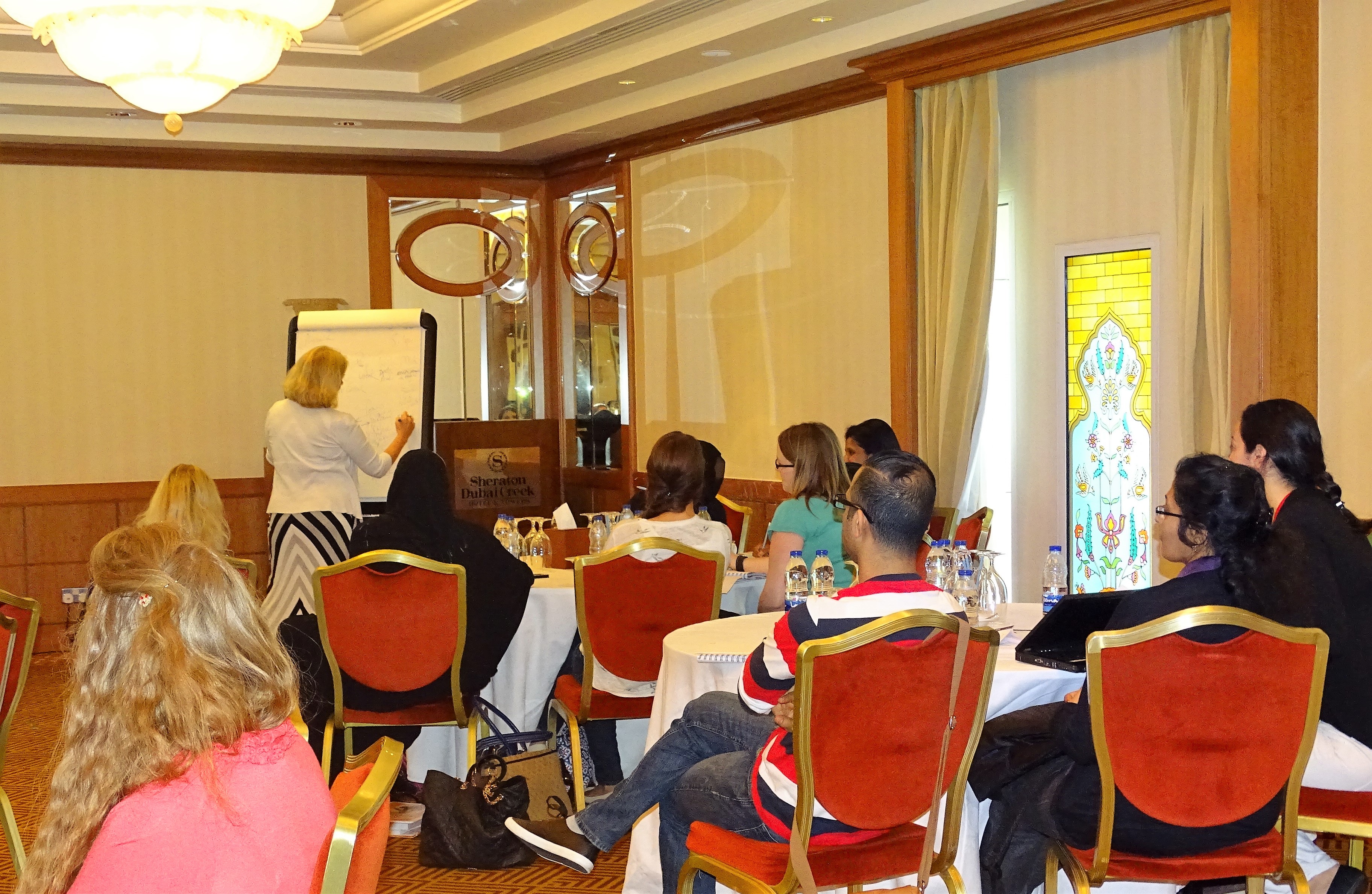
- Sensory Integration in School-Based Settings. With the 3 foundational courses completed, participants have acquired a solid base of knowledge to understand, practice, and promote Ayres Sensory Integration. This course further refines participants’ knowledge in a particular practice area by delving into special considerations, principles and intervention techniques as they apply to clinicians and clients in school settings.
This course is open to occupational therapists only. - Sensory Integration and Early Intervention. With the 3 foundational courses completed, participants have acquired a solid base of knowledge to understand, practice, and promote Ayres Sensory Integration. The course provides specialized instruction for those practitioners interested in/and or working with sensory integration as it applies to children ages 0-3 years.
This course is open to occupational, physical, and speech therapists. - Sensory Integration for Children with Autism. With the 3 foundational courses completed, participants have acquired a solid base of knowledge to understand, practice, and promote Ayres Sensory Integration. This course discusses the unique considerations and issues to consider when working with children with autism who have sensory integration difficulties.
This course is open to occupational therapists only. - Sensory-Based Feeding and Eating Challenges. With the 3 foundational courses completed, participants have acquired a solid base of knowledge to understand, practice, and promote Ayres Sensory Integration. This course provides specialized instruction on identifying and treating clients who have feeding and eating challenges originating from problems with sensory integration.
This course is open to occupational and speech therapists only.
